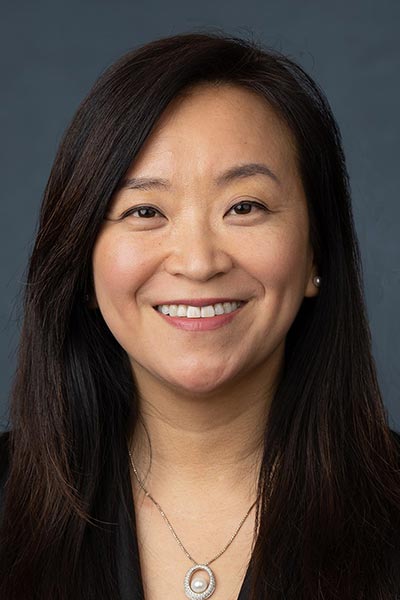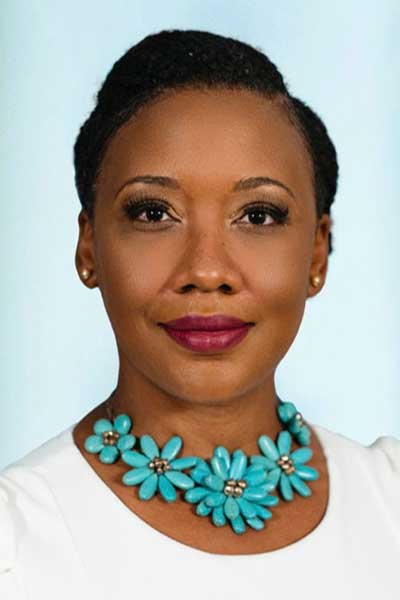The Review Course returns to ACR Convergence 2024 as part of the advance programming and will address high-yield topics for practicing rheumatologists on Friday, Nov. 15, from 7:30 a.m.–1 p.m. ET in Hall D/E of the Walter E. Washington Convention Center.

“We chose topics that are more innovative, that have never been covered before in the Review Course, like management of calcinosis, and then we have important updates in more commonly encountered rheumatic diseases such as rheumatoid arthritis and psoriatic arthritis, that really impact day-to-day management,” said Julie Paik, MD, MHS, Johns Hopkins University and co-chair of the Review Course. “These are topics that benefit young learners, academic rheumatologists, and the whole spectrum of practicing rheumatologists.”
Review Course Co-Chair Noelle A. Rolle, MBBS, FACR, FACP, Medical College of Georgia at Augusta University, said the eight featured lectures highlight topics that are not explored deeply elsewhere at the conference.
“It’s not going to be information that you’re going to hear on repeat. It’s going to be a comprehensive overview of questions that we often ask, but may be hard to answer on review of the literature,” said Dr. Rolle. “In the Review Course, you get an expert in the field with a lot of experience in that area. We include those who are established in an area and some early or mid-career speakers who are experts nonetheless.”
The faculty represents a variety of aspects of rheumatology as well as geographic regions across the globe. The lectures include:
- 7:35–8:10 a.m. — To Be or Not to Behcet’s?: Differentials for Oral Ulcers, with speaker Johannes Nowatzky, MD, New York University Grossman School of Medicine
- 8:10–8:45 a.m. — Psoriatic Arthritis Management Review, with speaker Ana-Maria Orbai, MD, MHS, Johns Hopkins University School of Medicine, Division of Rheumatology
- 8:45–9:20 a.m. — Geriatric Concerns in Rheumatology, with speaker Namrata Singh, MD, MSc, University of Washington
- 9:20–9:55 a.m. — Updates in Sarcoidosis, with speaker Lesley Ann Saketkoo, MD, MPH, University Medical Center, Comprehensive Pulmonary Hypertension Center, and ILD Clinic Programs, and New Orleans Scleroderma and Sarcoidosis Patient Care & Research Center
- 9:55–10:30 a.m. — Pain Management for the Rheumatologist, with speaker Daniel Clauw, MD, University of Michigan
- 11:10–11:45 a.m. — Beyond the Surface: Management of Calcinosis in Connective Tissue Diseases, with speaker Antonia Valenzuela, MD, MS, Pontificia Universidad Catolica de Chile
- 11:45 a.m.–12:20 p.m. — Case-Based Approach to Metabolic Bone Disease, with speaker Laura Carbone, MD, MS, Augusta University
- 12:20–12:55 p.m. — Challenging Cases in Rheumatoid Arthritis, with speaker Iain McInnes, MD, University of Glasgow, College of Medical Veterinary and Life Sciences, United Kingdom
“It’s the course that should not be missed because it highlights all the recent updates in the field of rheumatology in one day, which makes it packed with high-yield content in a digestible format,” Dr. Paik said.

Geriatric rheumatology, for example, is a burgeoning field as the population ages. “We did pediatric to adult transition of care concerns last year, and this year we wanted to pivot to our older patient population to see what concerns we should be looking at,” Dr. Rolle said.
Pain management is another high-interest topic for clinicians.
“A lot of times we get patients who have chronic pain issues, osteoarthritis and fibromyalgia,” Dr. Rolle said. “Usually, we spend a lot more time talking about inflammatory arthritis, like rheumatoid arthritis, psoriatic arthritis, gout, and lupus. But how can we help our patients when they have chronic pain? We’re bringing in someone who has the expertise in pain management so that people can learn from their perspective and get their questions answered.”
The Review Course will include pre- and post-tests at the start and end of the day to help attendees evaluate their knowledge of the topics presented.
“There will be one question per talk on the test,” Dr. Rolle explained. “At the end, they can redo the test to see what they’ve learned. They might think, ‘I wasn’t too sure about that or I wasn’t aware of that, but I walked out of here with a lot more information than I realized.’”

Registered ACR Convergence 2024 Participants:
Watch the Replay
Select ACR Convergence 2024 scientific sessions are available to registered participants for on-demand viewing through October 10, 2025. Log in to the meeting website to continue your ACR Convergence experience.
